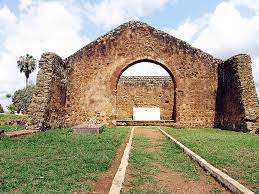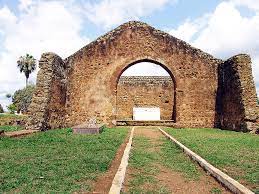This post discusses the culture of Angola, religion ethnic group, the arts and humanities and the heritage sites of Angola.
INTRODUCTION
The culture of Angola is influenced by the Portuguese. Portugal occupied the coastal enclave Luanda, and later also Benguela, since the 16th/17th centuries, and expanded into the territory of what is now Angola in the 19th/20th centuries, ruling it until 1975. Both countries share cultural aspects: language (Portuguese) and main religion (Roman Catholic Christianity). However, present-day Angolan culture is mostly NATIVE Bantu, which was mixed with Portuguese culture. The diverse ethnic communities with their own cultural traits, traditions and native languages or dialects include the Ovimbundu, Ambundu, Bakongo, Chokwe, Avambo and other peoples.
ETHNIC GROUPS AND LANGUAGES
There are over 100 distinct ethnic groups and languages/dialects in Angola. Although Portuguese is the official language, for many black Angolans it is a second or even third language. The three dominant ethnic groups are the Ovimbundu, Mbundu (better called Ambundu, speaking Kimbundu) and the Bakongo. There are also small numbers of Mestiço (mixed African and European descent) and ethnic white Europeans as well.
Read: REGIONS IN ANGOLA
RELIGION
Religious Beliefs, especially in the coastal regions, Christianity dates back a long time. A Christian church was established in the Kongo region by the end of the fifteenth century. It is unclear how many residents is Christian; the Roman Catholic Church figures range from 38 percent to 68 percent. Another 15 to 20 percent belong to Protestant denominations, such as Methodist, Baptist, and African churches. For many people there is no contradiction between Christian faith and aspects of African religions. Thus, religious specialists such as diviners and healers hold an important position in society. The government, with its socialist outlook, has been in frequent conflict with religious leaders. Because the Roman Catholic Church has great influence and was associated with Portuguese colonialism, relations with that faith have been especially tense. Since the move toward a more liberal political system, relations with the established churches have eased considerably, although troubling incidents continue to occur. An unknown number of residents do not profess any religion.
THE ARTS AND HUMANITIES
Literature: Angola has an outstanding literary tradition. An important genre has been political poetry, of which the former president Agostinho Neto was a significant representative. The arts, relatively free from censorship, have been an important way to express criticism of the political system. Oral literature is important in many communities, including mermaids in Luandan lore, Ovimbundu trickster tales, and sand graphs and their explication in the east.
Graphic Arts: Crafts such as wood carving and pottery are sold in neighboring countries. Luanda has a number of museums, including the Museum of Anthropology.
Performance Arts: Angolan music, with its ties to Brazil, has received international attention. The most popular spectator sports are soccer and basketball.

HERITAGE SITES
This is a list of the cultural heritage sites in Angola:
| Site | Inscribed | Category | Reviews | Rating |
| Mbanza Kongo | 2017 | Cultural | 0 | 3.95 |
Tentative List
| Site | Added | Scheduled | Category | Reviews | Rating |
| Church of Nossa Senhora da Conceicao da Muxima | 1996 | Cultural | 0 | N/A | |
| Church of Nossa Senhora da Victoria | 1996 | Cultural | 0 | N/A | |
| Church of Nossa Senhora do Rosario | 1996 | Cultural | 0 | N/A | |
| Corredor do Kwanza – Paysage Culturel | 2017 | Mixed | 0 | N/A | |
| Cuito Cuanavale, Site de Libération et Independence | 2017 | Cultural | 0 | N/A | |
| Fortress of Kambambe | 1996 | Cultural | 0 | N/A | |
| Fortress of Massanganu | 1996 | Cultural | 0 | N/A | |
| Fortress of Muxima | 1996 | Cultural | 0 | N/A | |
| Fortress of S.Francisco do Penedo | 1996 | Cultural | 0 | N/A | |
| Fortress of S.Miguel | 1996 | Cultural | 0 | 0% | |
| Fortress of S.Pedro da Barra | 1996 | Cultural | 0 | N/A | |
| Little Fort of Kikombo | 1996 | Cultural | 0 | N/A | |
| Site Archéologique de Tchitundu-Hulu | 2017 | Cultural | 0 | N/A |


